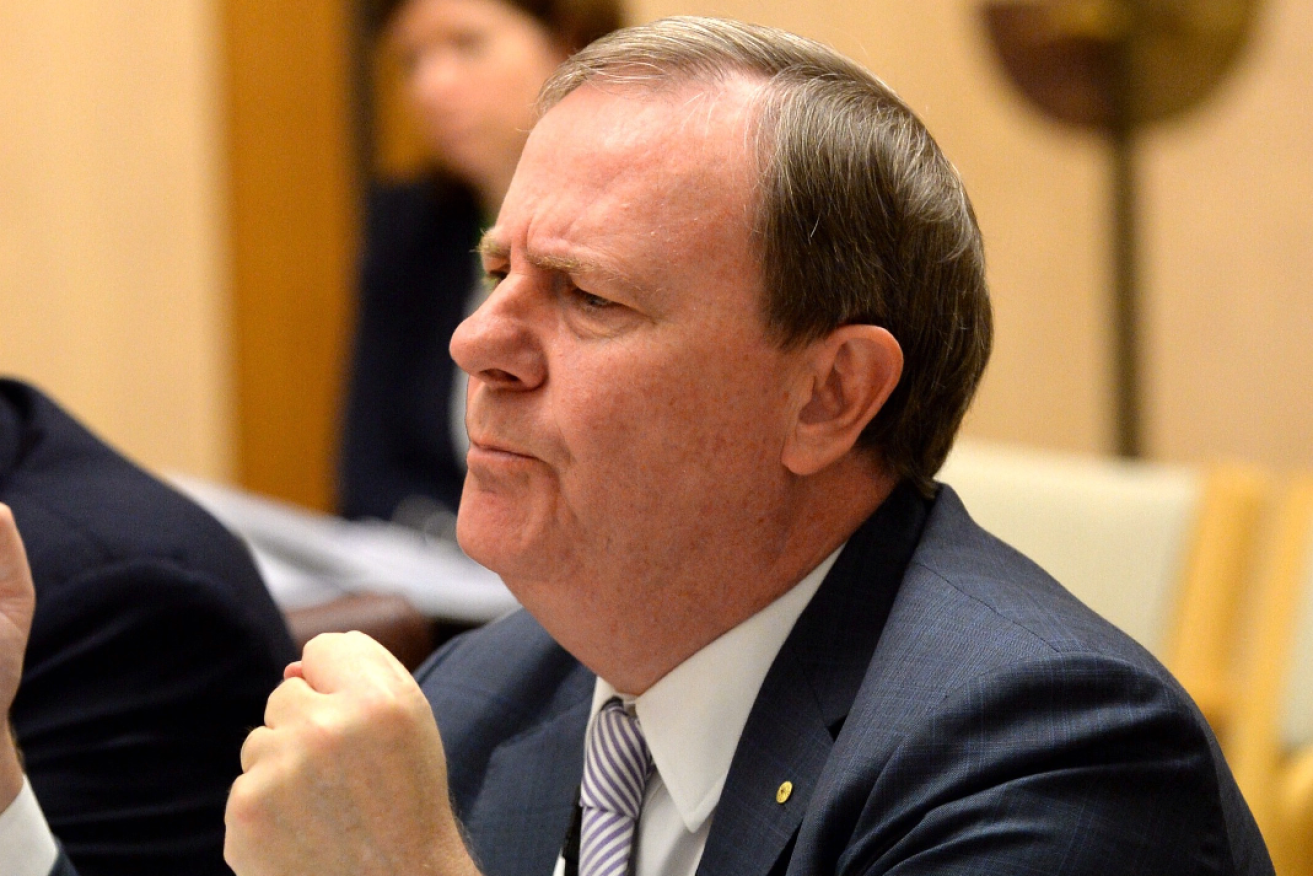Why Peter Costello is not even half right on housing


Peter Costello warns the budget will not return to surplus in his lifetime. Photo: AAP
When former treasurer Peter Costello called on Monday for interest rates to be ‘normalised’ upwards to stop Australia’s credit bubble getting any larger, he was very nearly half right.
As long as the Reserve Bank keeps the official cash rate at the record low of 1.5 per cent, the economy will become increasingly “unbalanced”, as he put it.
And although struggling families will protest that they can’t afford higher mortgage repayments, the other side of that coin is that each successive wave of first home owners is taking on even higher debts.
The longer that super-low rates persist, the more debt the banks will be able to balance on the shoulders of new home buyers. That has already created huge property-based inequality.
But Mr Costello’s comments weren’t focused on that imbalance – he’s worried about the impact that unstable house prices or teetering banks could have on economic growth more generally.
He told The Australian that “once [the price of] money returns to more normal levels” Australia could face a “big problem” with asset prices and the housing market.
Quite right, but what could prevent that?
A gradual increase in rates will not, in itself, ‘fix’ the housing market. To do that, two other abnormalities need to be addressed.
The one mentioned most by Mr Costello’s side of politics is the availability of suitable dwellings – the ‘supply problem’. That is a wildly misunderstood problem, so I will look at it separately in coming days.
But bigger than either low rates or the supposed ‘supply problem’ is the abnormality that Mr Costello himself created – tax laws that reward investors for making annual losses in the housing market, so as to reap lightly-taxed capital gains years down the track.
In 1999, Mr Costello applied a 50 per cent discount to the capital gains tax paid when a property was sold – ostensibly to simplify the tax code.

Peter Costello said “once [the price of] money returns to more normal levels” Australia could face a “big problem” with asset prices and the housing market. Photo: AAP
The problem is, neither of those objectives is being met – quite the reverse, in fact. And anyone who doubts that can prove it by crunching the numbers with their own tax accountant.
Just give your accountant a timeframe, the price of a property you want to buy, and your assumptions for the capital gain on the property, your annual income from other sources, and your assumption for interest rates.
From that set of assumed numbers they can work out what sort of return on investment would likely be generated.
The more money you earn elsewhere, the larger the portion of your earnings are taxed at the higher marginal rates – currently 37 cents in the dollar over $87,000 or 45 cents for incomes above $180,000.
And as your accountant will point out, the more you lose on your investment property, the more of your upper-bracket tax bill is wiped out by negative gearing – while in the background, large capital gains accrue that will eventually be taxed at half your marginal rate.
If you then ask your accountant to repeat the calculation without the negative-gearing tax refunds, and remove the 50 per cent discount on capital gains generated over the assumed period, the return on that investment will be much lower.
As any investor knows, the price of an asset is related to the likely return, taking into account how risky the asset class is.
So when the tax breaks are stripped out, both the long-term return and the price of the asset would be substantially lower.
That’s why we can be so sure about the damage done by Mr Costello’s capital gains tax change in 1999 – it’s not a matter of academic argument, but of straight arithmetic.
One could even call it ‘Costello’s Law’ – at any interest rate, the toxic interaction of negative gearing and the capital gains tax discount will create excess demand for property assets and push up prices.
So the RBA does have work to do. But it can’t remove the huge imbalance at the heart of economy without changes to our damaging property tax regime.








